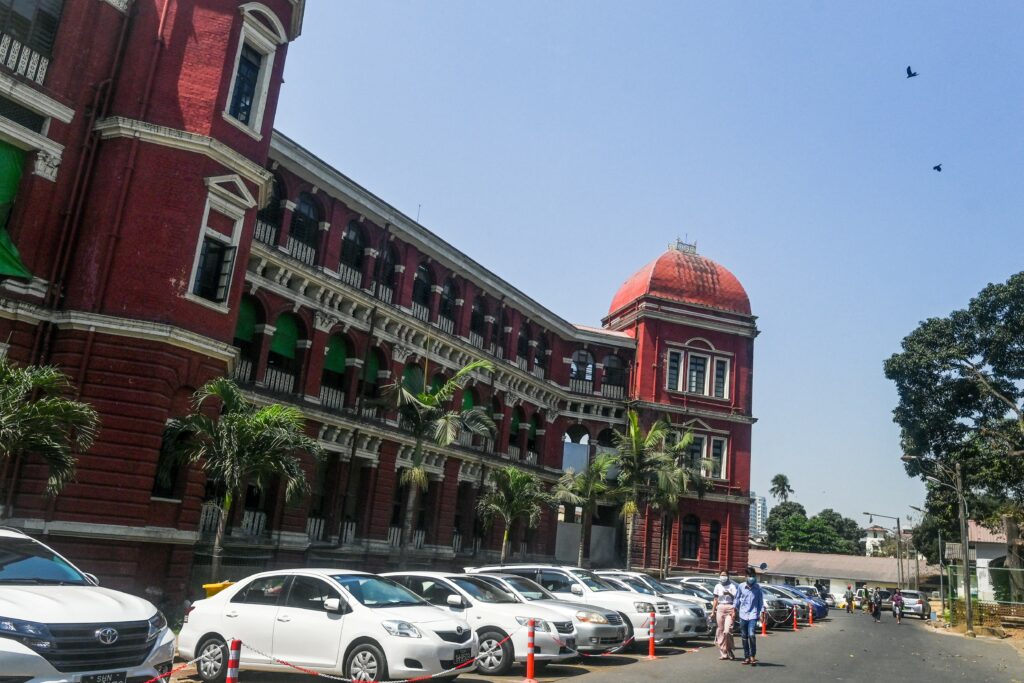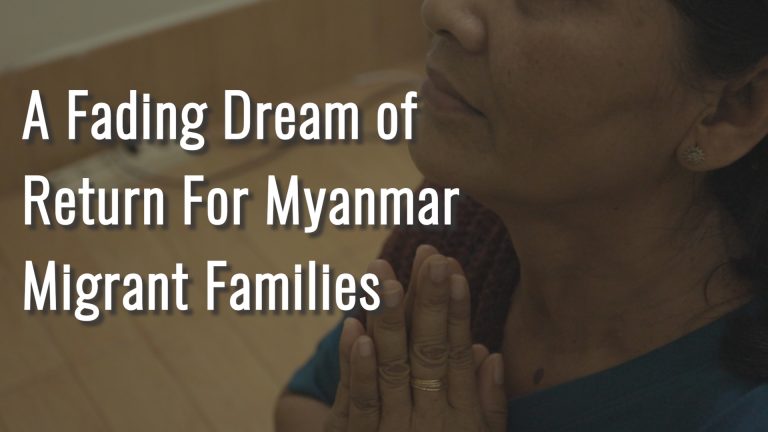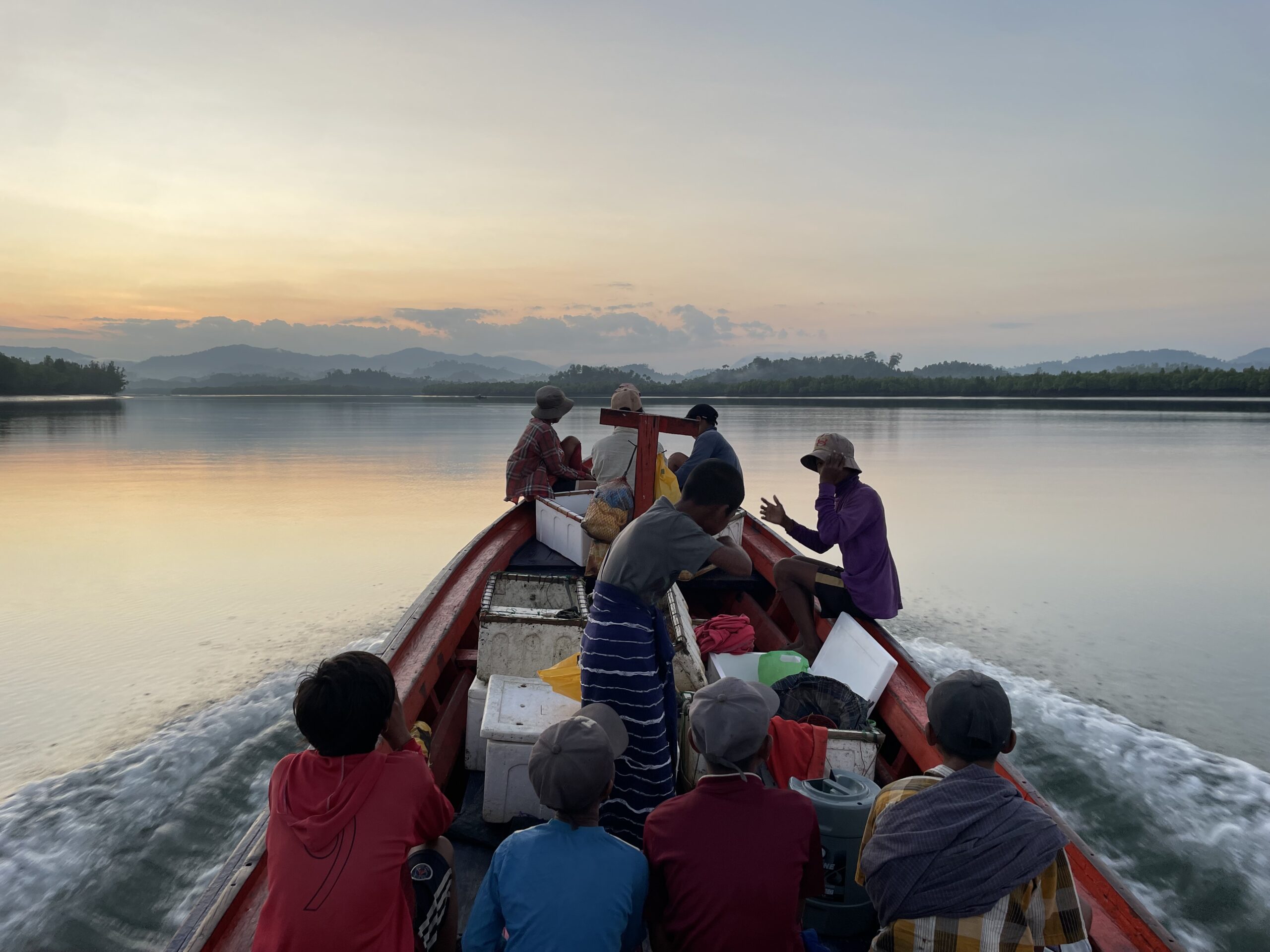An increasing number of Myanmar people are selling kidneys as a quick-fix solution to poverty and debt, with many donors going to India for transplants and telling lies to have them approved.
By FRONTIER
Ma Nyein Nyein Naing, 27, wants to sell one of her kidneys to pay off a big debt even though she is four months pregnant and knows that having the organ removed might affect the health of the foetus.
She lives in Yangon’s West Hlaing Tharyar Township and works at a garment factory but her salary is inadequate to cover her debt, which has accrued since her husband left four months ago, and pay for the cost of giving birth.
“My salary is K140,000 (US$50) a month, but my debt is K2 million ($700). To give birth and raise this child I need more money and I don’t want to be in debt. That’s why I want to sell my kidney – I will find a way to do it safely”, said Nyein Nyein Naing, who divorced while pregnant with this, her first child.
It was not an easy decision to sell a kidney, but she has no other way of raising a large amount of money in a short time. She has taken the first step by joining a Facebook group of people affected by kidney disease to make contact with prospective transplant recipients.
However, she is yet to receive an offer from brokers, agents or anyone needing a transplant. Nyein Nyein Naing said that because she is pregnant, she has been advised not to sell a kidney.
“If a pregnant woman donates or sells a kidney, she and the foetus will definitely be in danger,” a doctor told Frontier. “Most doctors would not be prepared to remove a kidney from a pregnant woman because of the health risks, but if she meets an unprofessional doctor who is prepared to remove her kidney the health complications could be serious.”
Ko Win Aung, an unemployed 26-year-old from Mandalay, donated a kidney in 2021 after posting in a similar Facebook group. He advertised on Facebook in March 2021 and was contacted the following July through Messenger by a person who needed a transplant and wanted the operation performed in India.
“I had to undergo a series of tests to determine if my kidney was a suitable match for the intended recipient. It took about a month. After that I applied for a medical visa at the Indian embassy in Yangon and travelled to New Delhi in September for the transplant,” he said.
“Now, I’m fully recovered. I told the authorisation committee in India, who are doctors from a private hospital, that I was related to the recipient and that’s why it approved the operation,” he added, admitting that he had told a lie.
Win Aung said he decided to donate his kidney because he was jobless and needed money to support his wife and two sons. Win Aung said he was paid K7 million, around $2,500, for the organ transplant.
“It solved my financial problems. I don’t regret it,” he said.
Skirting the law
The first kidney transplant in Myanmar took place in Yangon General Hospital in May 1997. Ministry of Health data suggests that only a handful of operations have officially taken place in the country’s public hospitals each year since then, with just 55 recorded between 2014 and 2019.
The 2015 Body Organ Donation Law prohibits the sale of body organs in Myanmar, but financial hardship amid the economic turmoil since the February 2021 coup has seen an increase in the number of posts from kidney donors and patients on social media groups.
Exacerbating the demand for illegal or international transplants is the fact that organ transplants have been suspended in Myanmar since 2020 due to the COVID-19 pandemic.
A doctor who joined the mass strike of civil servants known as the Civil Disobedience Movement, said there had been long waiting lists for kidney transplants at public hospitals, but that the health ministry under the overthrown National League for Democracy government had ordered a halt to the operations.
In late November last year, state media reported that junta health minister Dr Thet Khaing Win held talks with the medical superintendent of the 500-bed Speciality Hospital in downtown Yangon, health department heads and medical specialists. Shortly afterwards, kidney transplant procedures resumed.
The doctor said they did not know if transplants were being performed at private hospitals over the period, but other sources said that they continued despite the change in the law.
“I think Pun Hlaing Hospital is doing transplants and they cost at least K35 million ($12,280). There’s probably a waiting list for the operations,” the CDM doctor said. Other sources confirmed to Frontier that the private hospital is currently performing the procedure.
Under the Body Organ Donation Law, it is an offence to donate organs by inducement, deceit, persuasion or dishonest incitement, or to sell or buy organs, and the maximum penalty for breaches is three years’ imprisonment.
The law also stipulates that donors must be alive (or have given prior consent for organs to be removed after death), aged at least 18 and in good mental health.
As the 2015 law does not apply outside Myanmar, those who either want to sell their organs or who do not meet the eligibility criteria usually travel to India, Thailand or Singapore for transplant operations. Most go to India, where it is easier to arrange a transplant because there are fewer restrictions.
The cost of a transplant in an Indian private hospital is about US$11,000 (about K23 million), much less than the $60,000 it would cost in Thailand. There are also strict regulations on organ transplants in Thailand, where the recipient must be related to the donor and a DNA test is required as proof.
“India has great medical facilities for kidney transplants. There are many agents who can arrange medical tours to India and most Myanmar have transplants performed in New Delhi,” said U Than Myint, from the Magway Region-based Arriyan social charity group that facilitates contacts between donors and patients.
He confirmed that most donors were given K7 million ($2,500) in compensation for a kidney and said that the number of those waiting to donate had increased significantly since the 2021 military takeover.
Arriyan says donors need to undergo checks of their health and their kidneys to determine if they are eligible to donate their organs in India, but there is no need for a DNA test to prove a relation to a recipient.
India’s Transplantation of Human Organs Act stipulates that a near-relative (spouse, children, grandchildren, siblings, parents and grandparents) needs the permission of a doctor in charge of a transplant centre, and a non-relative donor needs the permission of a government authorisation committee – a requirement that does not appear to discourage those involved in the trade in Myanmar.
“We have a trick to get agreement from doctors in India for a kidney transplant, even if the donor and patient are not relatives,” Than Myint said.
U Thein Win, an agent in Magway’s Chauk Township who matches donors with patients, told Frontier last month that when the Indian authorisation committee interviews donors it asks if they are related to the patient.
Agents that spoke to Frontier were not forthcoming about how other obstacles to donation were overcome, but they all said that there were ways of guaranteeing the procedure goes ahead.
“The donor must tell doctors that they are related to the recipient… but aside from that, I can’t tell you how we get permission from the authorisation committee,” said Thein Win.
Dodgy household lists, fake family trees
However, donors who asked to remain anonymous told Frontier that they had arranged for their names to be falsely added to the patient’s household registration list or had prepared fake family trees that showed they were related.
“I think it is the best way to donate a kidney to a non-relative patient. Otherwise, the authorisation committee will not grant permission easily for a transplant. It is a win-win situation for donor and patient,” 28-year-old Yangon resident Ko Sai told Frontier in December last year.
Ko Sai was paid K7 million by the person who received his kidney in a transplant performed in India in March last year. The patient also covered the cost of his visa, accommodation and travel expenses.
“I donated one of my kidneys because I needed the money. I badly needed to solve my difficulties and the regulations were not important to me,” he said.
Ko Naing Win, 34, who lives in Mandalay Region’s Kyaukpadaung Township and donated his kidney in an operation performed in India in 2021, said he was unaware before he travelled there that the law there required permission from an authorisation committee for a transplant to a non-relative because his agent hadn’t explained that it was needed. To overcome this, he said he lied and told Indian doctors that he was a relative of the recipient.
Nang Myint Mo, 36, who lives in Yangon’s Kyimyindaing Township, received a kidney from a non-relative donor in a transplant performed in India in 2021. She was put in touch with the donor by an agent in 2021 and said she didn’t care about the regulations in India but was only concerned about finding the right match.
“I paid K7 million to the donor, but I didn’t put the donor’s name on my household registration list. I have no idea how the donor was approved by the authorisation committee,” she told Frontier.
‘It’s a very hard decision to sell an organ’
Ma Seng Mai, a 33-year-old Myanmar national who works as a journalist abroad, received a transplant operation in Thailand in 2021. She said donors who want to sell their kidneys shouldn’t be criticised because they are doing so out of economic desperation.
“It’s a very hard decision to sell an organ. I don’t blame them, and neither should other people,” she said.
“I would have preferred for the transplant operation to have taken place in my country, but I was worried about the skills of doctors,” said Myint Mo. “It doesn’t mean I underestimate the doctors in Myanmar, but the operation is very important for two people, the donor and patient. That’s why I chose India,” she said.
Win Aung said he thinks he will never earn much money, so the windfall received from donating his kidney was worth the risk. He also provided a moral justification for his choice.
“As a Buddhist, I believe that donating an organ is a good way to earn merit in this life as well as the next life. There are no injunctions in Buddhism for or against organ donation,” he said.







